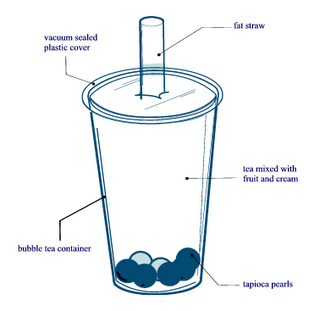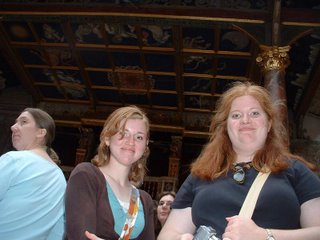Londonderry or Derry? Depends on what side you're one..
If I had entered Northern Ireland with NO introduction to its history or culture I might be having second thoughts about my visit. Without understanding the context of this beautiful country, you can feel the oppression weighing you down. However, thanks to my N.I. friends who patiently explained the situation, I felt prepared to view the country, scars and all.
A BBC account of the troubles here, however I’m not sure what angle they are reporting from.
What I know (thanks to Aideen Maguire), in a nutshell:
"The Troubles" emerged as the result of years of escalating incidents between Catholics and Protestants. Ireland was ruled by Great Britain for most of its history, (1300s-1920). The British came over and worked their way through Ireland quietly taking it over and forcing the previous owners to pay rent. During this time there were numerous revolts by the Catholics against their Protestant landlords.
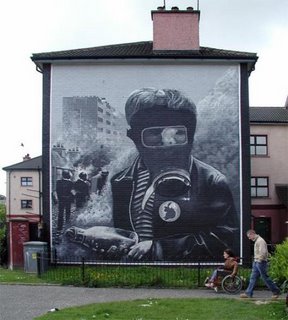 The settlement of Ulster in 1609 was massive in scale and resulted in the intrusion of a Protestant culture that was completely alien to its Catholic inhabitants. Massacres of both Protestants and Catholics took place throughout the 1600s, as the two sides battled for the right to occupy the land each now called home. This mistrust lay dormant for a few hundred years with small scale fighting still going on. Bad feelings resulting from this colonization by Protestant settlers was followed by centuries of political and social segregation. Ireland was now Governed by the British Parliament. Laws were enacted to keep the Catholics out of office, business and schools. Attempts were made at 'Home Rule', but this angered both the Protestants and Catholics. Protestants didn’t want a government in Ireland because then by law they would have to have equal numbers of each religion in its office. This didn’t make them happy as they liked having their all protestant government. Catholics didn’t want it because they wanted their own Irish Rule.
The settlement of Ulster in 1609 was massive in scale and resulted in the intrusion of a Protestant culture that was completely alien to its Catholic inhabitants. Massacres of both Protestants and Catholics took place throughout the 1600s, as the two sides battled for the right to occupy the land each now called home. This mistrust lay dormant for a few hundred years with small scale fighting still going on. Bad feelings resulting from this colonization by Protestant settlers was followed by centuries of political and social segregation. Ireland was now Governed by the British Parliament. Laws were enacted to keep the Catholics out of office, business and schools. Attempts were made at 'Home Rule', but this angered both the Protestants and Catholics. Protestants didn’t want a government in Ireland because then by law they would have to have equal numbers of each religion in its office. This didn’t make them happy as they liked having their all protestant government. Catholics didn’t want it because they wanted their own Irish Rule.
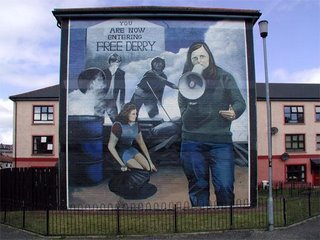 The resulting compromise was the partitioning of Ireland into the Republic of Ireland (the South) and Northern Ireland in 1920. Redrawing of the border happened soon after and three of this new country Northern Irelands nine counties were given to the South.
The resulting compromise was the partitioning of Ireland into the Republic of Ireland (the South) and Northern Ireland in 1920. Redrawing of the border happened soon after and three of this new country Northern Irelands nine counties were given to the South.
Each community continued to be defined by its religious affiliation, with little mixture between the two groups. Schools, neighborhoods, workplaces, entertainment venues all remained segregated. Sporadic violence continued between the two communities and their lack of contact due to increased segregation created feelings of deep distrust between the Catholic and Protestant communities.
Catholic representation in the judicial system was six to sixty-eight in 1968. Catholic employment averaged 30%. The jobs for Catholics tended to be lower end of the job market. Sir Basil Brooke, who served as Northern Ireland's prime minister for twenty years, actively promoted a system of employment where jobs were offered mainly to Protestants. He said, quote!!!... "I recommend those people who are Loyalists not to employ Roman Catholics" School funding for Catholics was only 65% of that given to the Protestant schools.
 Inspired by the civil rights movements in the United States, in the late 1960s groups of Catholics and liberal Protestants gathered together to form the Northern Ireland Civil Rights Association (NICRA). The violence itself really kicked off in 1968 at the beginning of NICRA's campaign of peaceful demonstrations to enlist the support of the Catholic community. Their first march, took place peacefully but the second march in Derry was violently broken up by the RUC and the B Specials. (Peter's Mom, Barbara marched in this protest and was nearly hit by a large stone as they were being thrown at the marchers.. she and her cousin had to flee from the ambush)
Inspired by the civil rights movements in the United States, in the late 1960s groups of Catholics and liberal Protestants gathered together to form the Northern Ireland Civil Rights Association (NICRA). The violence itself really kicked off in 1968 at the beginning of NICRA's campaign of peaceful demonstrations to enlist the support of the Catholic community. Their first march, took place peacefully but the second march in Derry was violently broken up by the RUC and the B Specials. (Peter's Mom, Barbara marched in this protest and was nearly hit by a large stone as they were being thrown at the marchers.. she and her cousin had to flee from the ambush) By the summer of 1969 increasing violence between Catholics demonstrating for equal rights and Protestants demonstrating against the Catholics demonstrating led to the intervention of the British government, in the form of the military. The final straw, which escalated the violence to an insurgency (clever word for war!), was the 1971 introduction permanently of Internment without trial by the government of Northern Ireland. Catholics were lifted off the street solely because of their religion and placed in jail without explanation, indefinitely. Catholic anger rose in the form of demonstrations.
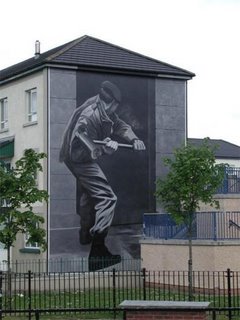 The most famous of these anti-Internment demonstrations resulted in the Bloody Sunday killings in Derry in January 1972, when British solders fired into the Catholic crowd, killing thirteen people.
The most famous of these anti-Internment demonstrations resulted in the Bloody Sunday killings in Derry in January 1972, when British solders fired into the Catholic crowd, killing thirteen people. The point got lost along the way and as more and more civil rights were granted to Catholics, Protestants got angrier and more violent. And as they got more violent Catholics did too until it reached the point now where the fight is merely over years of hatred for the opposite community.
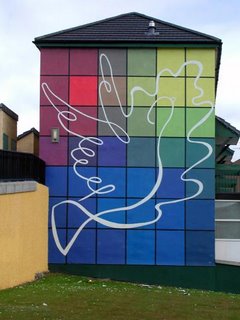




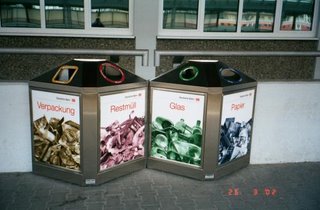
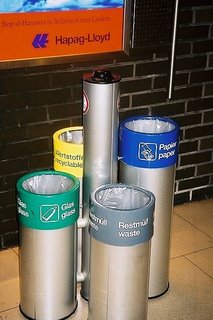
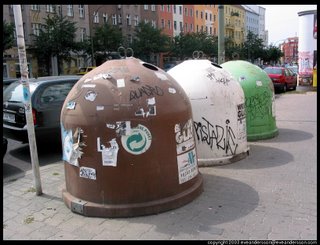
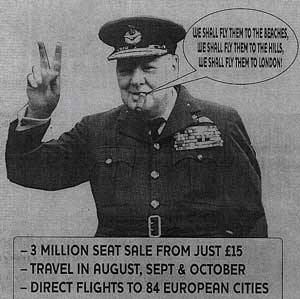












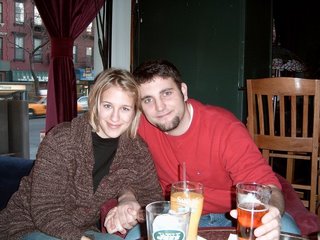








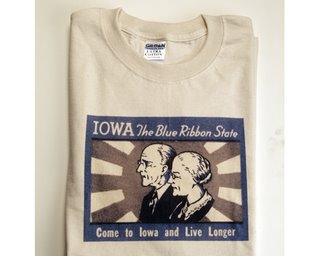



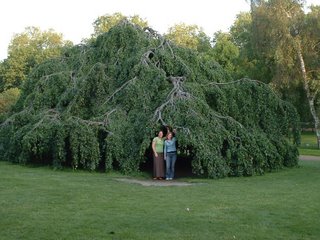

 Chinatown
Chinatown